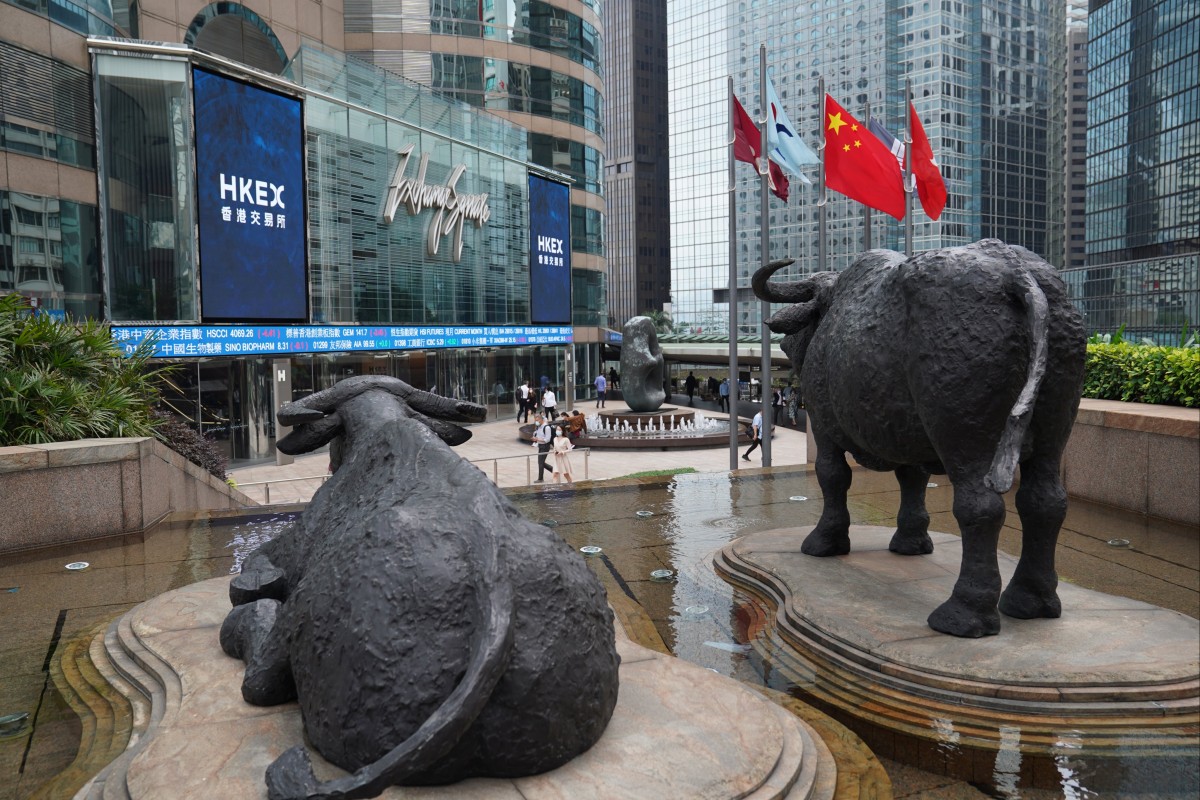Rise Of The Prime: World Stock Market And Its Top 5 Countries
Top 5 Countries Of The World Stock Market

The prime leaders of the world stock market, with the United States in the lead, followed by China, Japan, Hong Kong, and India, have placed themselves as the top nations of market capitalization. The global economy thrives on the strength and performance of various stock markets worldwide. The key manifesto for companies to raise capital and investors to grow their wealth is this financial platform of the stock market.

-
United States: $44.54 Trillion
The United States stock market stands head and shoulders above its global counterparts, with a staggering market capitalization of $44.54 trillion. The US stock market is home to NYSE, i.e., the NY Stock Exchange and NASDAQ, among the world’s most prominent and influential stock exchanges. The US stock market attracts domestic and international investors with an extensive range of listed companies across various sectors, including technology, finance, healthcare, and consumer goods.
The robustness of the US stock market can be attributed to its transparent regulatory framework, investor protection measures, and well-developed financial infrastructure. The stock market’s resilience has been tested repeatedly, weathering economic downturns and emerging more robust each time. The US stock market’s ability to foster innovation and attract entrepreneurial ventures has also driven its sustained growth.
2. China: $10.26 Trillion
China’s stock market is second on the list with a market capitalization of $10.26 trillion. The country boasts market capitalization with two primary sources, the Shanghai Stock Exchange and the Shenzhen Stock Exchange. China’s stock market expansion can be attributed to its rapid economic development, growing middle class, and increasing investor participation.
Although subject to specific regulatory controls, the Chinese stock market has modified and loosened itself considerably concerning its efforts to attract foreign investors. Including Chinese A-shares in global stock market indices, including the MSCI Emerging Markets Index, has further amplified interest in the market. However, many concerns remain, including tensions over corporate governance and transparency, which the Chinese government addresses to foster investor confidence.

3. Japan: $5.68 Trillion
Japan’s stock market, represented primarily by the Tokyo Stock Exchange, holds the third position on our list with a market capitalization of $5.68 trillion. Despite facing economic headwinds over the past decades, Japan’s stock market has managed to maintain its significance on the global stage.
Japan’s stock market attracts domestic and international investors because of its strong manufacturing and technological prowess. The market is characterized by diverse companies spanning automotive, electronics, finance, and pharmaceutical sectors. The market is marked by its uniqueness for high liquidity and strong corporate governance standards.
4. Hong Kong – $5.14 Trillion
With a market capitalization of $5.14 trillion, Hong Kong’s stock market, also known as HKEX (Hong Kong Stock Exchange), secures the fourth position on the global stage. It is a crucial driver of the city’s financial prominence and is a gateway between Mainland China and international markets. Hong Kong’s strategic location, business-friendly environment, and deep capital markets attract many investors and companies. The market is particularly notable for its robust IPO activity and substantial presence in the finance, real estate, and retail sectors.
Strong stock markets facilitate capital formation by allowing institutions to acquire assets through IPOs and subsequent stock issuances. A larger market capitalization indicates the availability of substantial capital for companies to finance their growth, research and development, and strategic initiatives. The performance of these stock markets is closely linked to the overall health of the economies they represent.

5. India – $3.31 Trillion
The Indian stock market has seen a very worthwhile investment in recent years. India’s stock market, which has had such impressive development and today has a market value of $3.31 trillion, is the fifth largest in the world. The Bombay Stock Exchange (BSE) and the National Stock Exchange (NSE), with significant foreign and domestic investors inside the platform, are the leading and main foreign exchanges. India’s stock market reflects the nation’s dynamic economy, which has particular strengths in consumer products, medicines, and information technology. Investor confidence has increased due to the Indian government’s economic reforms and initiatives to make doing business easier.
The presence of large stock markets attracts foreign investors seeking opportunities for diversification and higher returns. International investors bring assets, fostering global integration and cross-border investments. This capital inflow can support economic development, infrastructure projects, and technological advancements. Well-regulated and transparent stock markets are crucial for maintaining investor confidence. As these markets grow, there is a notable impact on corporate governance practices, disclosure requirements, and investor protection. Strengthening these aspects enhances transparency and accountability, reducing the risk of fraud and improving market efficiency.
Why World Stock Market Matters?
Investors can access more listed companies, sectors, and asset classes with larger markets. This allows for diversification and potentially higher returns on investments. Strong stock exchange indicate investor confidence, which can lead to increased consumer spending, business investments, and job creation. Such stock exchange market can also experience heightened volatility driven by geopolitical events, economic indicators, and investor sentiment. Market fluctuations can impact investor portfolios, company valuations, and overall market stability. It highlights the importance of risk management strategies and diversification to mitigate potential losses.
The financial implications extend beyond domestic borders. Stock exchange performance can influence exchange rates, international trade flows, and global financial stability. For example, a strong stock exchange in a country may attract foreign investment and strengthen its currency, impacting trade competitiveness and capital flows.

They are the primary source of tax revenues through transaction fees, capital gains, and corporate taxes. A robust stock exchange can contribute to government budgets, funding public infrastructure projects, social welfare programs, and economic development initiatives.
The world’s largest stock exchanges provide a barometer for the endurance and health of global economies. The United States stands at the forefront, with an impressive $44.54 trillion market capitalization, thus becoming the powerhouse in the financial world. China, Japan, Hong Kong, and India also have great investment opportunities and drive economic growth in their regions. As these markets continue to evolve and attract capital, they play an indispensable role in shaping the global financial landscape, providing investors with avenues for growth and prosperity.
Proofread & Published By Naveenika Chauhan




